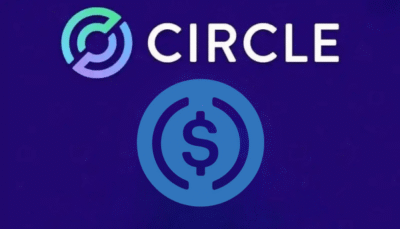Ethereum exchange-traded funds (ETFs) recorded $22 million in outflows on Tuesday, marking the fifth consecutive day of investor withdrawals.
According to data from analytics platform SoSoValue, Ethereum ETFs have struggled to retain investor interest, with BlackRock’s iShares Ethereum Trust ETF (ETHA) and Fidelity’s Ethereum Fund (FETH) leading the latest wave of outflows.
SoSoValue data shows that as of March 11, Ethereum ETFs have a cumulative total net inflow of $2.64 billion, with total net assets of $6.94 billion, accounting for 2.97% of Ethereum’s market capitalization. The total value traded stood at $374.09 million.
Despite these figures, the sector continues to experience substantial outflows, raising concerns about investor sentiment and the long-term viability of these funds.
BlackRock and Fidelity Lead Outflows
The biggest outflows came from BlackRock’s ETHA, which lost $11.82 million, followed by Fidelity’s FETH, which saw $9.75 million withdrawn. The latest outflows add to a broader trend of declining interest in Ethereum ETFs, which have struggled to match the performance of Bitcoin ETFs.
Data from Farside Investors further corroborates the downturn. On March 11, Ethereum ETFs saw total outflows of $21.6 million, with BlackRock losing $11.8 million and Fidelity experiencing a $9.8 million withdrawal. The pattern of losses has been consistent across multiple issuers. Since February 21, Ethereum ETFs have recorded significant daily outflows, with February 26 marking one of the worst days at $94.3 million in withdrawals. Other major outflows occurred on February 24 ($78 million) and February 27 ($71.2 million), demonstrating sustained investor skepticism.
Ethereum ETFs are not the only digital asset funds facing withdrawals. Bitcoin ETFs saw a total of $371 million in outflows, reflecting a broader shift in sentiment across cryptocurrency investment products. Despite Ethereum’s role as the second-largest cryptocurrency by market capitalization, its ETFs have significantly underperformed compared to their Bitcoin counterparts.
Fidelity Pushes for Staking to Revive Interest
The lack of staking options is a major concern among investors. Staking allows Ethereum holders to earn additional yield by securing the network, a key advantage that Ethereum offers over Bitcoin. Many industry experts believe that integrating staking into ETFs could help bolster demand.
Fidelity has moved to address this concern by requesting regulatory approval to introduce staking for its ETF. If approved, it would be the first U.S. Ethereum ETF to allow staking, allowing investors to earn passive income.
The proposal aligns with broader efforts to make the U.S. more competitive in the digital asset sector, where staking is already a standard feature in various decentralized finance (DeFi) applications.
Ethereum’s underperformance extends beyond ETFs. On Tuesday, ETH dropped to an intraday low of $1,874 on the Bitstamp exchange. The cryptocurrency has fallen more than 43% this year, reflecting broader market struggles and regulatory uncertainty.
Despite the downturn, Consensys CEO Joseph Lubin remains optimistic. In a recent statement, Lubin said he had “never been more bullish” on Ethereum, suggesting that current market conditions could present a long-term buying opportunity. “Not financial advice, of course, but we are either in, or approaching an epic setup,” Lubin stated.





